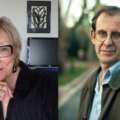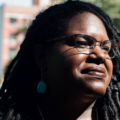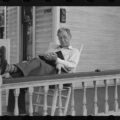The Secret History of our Enemies: Balaban’s Translations of Vietnamese Poetry

Decades ago, when I first read All Quiet on the Western Front, I copied this sentence into my journal: “A word of command has made these silent figures our enemies; a word of command might transform them into our friends.” Years later, in the mid-1990s, I was a volunteer at the World Friendship Center in Hiroshima. A survey that had just come out reported that a remarkable percentage of Japanese people born after WWII believed that the United States and Japan had been allies during the war. How do enemies, tearing at each others’ throats, become friends? How does that happen?
The process of transformation begins in the imagination, and one tool of the imagination is literature. Karen Armstrong, the scholar of religion, in her book Twelve Steps to a Compassionate Life, describes how art might contribute to an extension of sympathy:
Plays, films and novels all enable us to enter imaginatively into other lives and make an empathetic identification with people whose experience are entirely different from our own. They can give us moments of compassionate ekstasis [a “stepping out” of habitual understandings], and we should resolve, during this step, to allow art to unsettle us and make us question ingrained preconceptions.
I remember Paul’s despair after the intensity of trench warfare as if it had been my own life. “How senseless is everything that can ever be written, done, or thought,” Remarque writes, “when such things are possible.” It echoes Adorno’s famous declaration, “To write poetry after Auschwitz is barbaric.” Adorno later clarified this statement, taken out of its context in a densely philosophical essay, saying that he could also support “Hegel’s statement in his Aesthetics that as long as there is an awareness of suffering among human beings there must also be art as the objective form of that awareness.” To be aware of the suffering and the powerful forces that command and organize it requires situating that suffering in values that are likewise powerful enough to transform the experience for those who suffer it and perhaps the structures that perpetuate it as well. In Remarque’s novel, Paul reflects in a similar way:
I am young, I am twenty years old; yet I know nothing of life but despair, death, fear, and fatuous superficiality cast over an abyss of sorrow. I see how peoples are set against one another, and in silence, unknowingly, foolishly, obediently, innocently slay one another. I see that the keenest brains of the world invent weapons and words to make it more refined and enduring.
For many soldiers, medics, and others who encounter warfare directly, these lessons are imprinted through experience. Others, fortunately, are able to learn some of this through a moral imagination engaged in literature, in words that refuse to refine and reinforce the inhumanity of warfare. It’s important that a war generation—as most are—practice sympathy for those who suffer.
It’s stunning in a country that has engaged in war of one sort or another for most of its existence that Remarque’s book should remain on high school reading lists, is even required in some places, precisely because it exposes the brutality rather than the nobility of war. Even more shocking is that it does so through the experience of “the enemy.”
We have yet to allow Afghan or Iraqi stories to attain that place in our American consciousness, though Heather Raffo’s excellent play, Nine Parts of Desire, approaches it. The drama depicts nine Iraqi women’s stories, made more intimate because it is often performed by a single actor, encouraging audience members to let the arbitrary boundaries between selves to soften. As a second generation Iraqi-American, Raffo’s voice is potent. The Afghan or Iraqi work that finds a common human experience, that breaks through the official version of the enemy, cannot be far behind.
Given the amount of time that’s passed, one would think there would be an All Quiet for the Korean war. Perhaps the film and subsequent television series M.A.S.H. fulfilled that need, despite it being an allegory for the Vietnam war—which is itself well-represented via memoirs, novels, and poems, by a wide range of U.S. citizens who went to Asia and were transformed there. In poetry, Korean-war veteran Keith Wilson created his three-part Graves Registry, first by reflecting on his experience in the U.S. Navy, then through observing Vietnam and thereafter.
Where are the Vietnamese stories of that shared suffering in American culture? Oliver Stone’s Heaven and Earth, which adapts Le Ly Hayslip’s two-volume memoir, is the most well-known example. The film follows a Vietnamese woman who gets caught between Communist and South Vietnamese fighters before tangling with Americans. She eventually marries a G.I. who takes her to the States, where she is subjected to his violent disintegration. The film is a kind of American story viewed through the back of the mirror, rather than a direct reflection of what war was like for the “enemy.” Hayslip’s books certainly offer a more direct insight into the Vietnamese experience. They don’t show up on anyone’s high school reading lists, though.
John Balaban registered as a conscientious objector during the Vietnam war but volunteered to work as a field representative for the International Voluntary Services, which treated wounded children. He tells the whole story in his very moving memoir, Remembering Heaven’s Face. In “The Invisible Powers,” a presentation given at the U.S. Air Force Academy in 2009, Balaban offered this thumbnail description of his work:
The children that we brought to major U.S. teaching hospitals were riddled by bullets, slashed by cluster bomb flechettes, blinded and deafened by tossed grenades, had their lips and jaws shot away, their spines severed. Others had their limbs blown off, including one 12-year-old boy left with only an arm after a road mine blast. Another boy had his chin glued to his chest by napalm.
Like many combat veterans, Balaban suffered from PTSD after his service. “The memory of such suffering would have been my sole, unadulterated sense of Vietnam,” he says, “hadn’t my job often taken me into the countryside.” There, he would talk with parents about their children’s care, and it was in the countryside that he first encountered the poetry of Vietnam. Over a nine-month period, while the war raged around him, Balaban began to gather and translate folk songs and poems, which Blue Unicorn press published as Ca Dao Viet Nam in 1974, and which were republished by Copper Canyon Press in 2003.

Ca Dao Viet Nam
Vietnamese Folk Poetry
trans. John Balaban
Softcover, $15.00
Copper Canyon Press
This volume was the first appearance of these works in any Western language, never mind English. In the new version, they are supplemented by a fine introduction and a moving account of how Balaban gathered songs over a nine-month period during the war.
Most of the forty nine pieces in Ca Dao Viet Nam are under 10 lines long, and Balaban creates poems in English that are sparse and musical without ever deteriorating into article-skipping phrases or forcing English rhyme or metrical patterns onto the originals. Ca dao (pronounced “ka zow” or “ka yow”) are not Chinese-style poems in Vietnamese, but, as Balaban reports, are native to Vietnam and were probably sung as far back as a thousand years ago, with even deeper roots.
What do these songs express? Moments of tranquility, the anguish of being far from home, putting a child to sleep, “Whisky Lovers,” the roll of the seasons, and, of course, love—longing for it and the pain of losing it. They are the same experiences of Japanese tanka and haiku, of the old English ballads, of literature around the world. What’s more, Balaban’s selections allow individual poems to create a larger experience.
The loneliness of “The Homesick Bride” who says, “I pick up my bowl. I put it down,” is followed by “The Outpost Soldier” who first describes the landscape of his exile and ends, “I’ve lived in the forest for three years.” The intensity of being in one place while longing for another is an exile’s experience. These could be torn from any immigrant’s letters coming to the U.S. from any part of the world, or they could be notes in a diary of a settler of the North American prairies. Or they could be Syrians in the refugee camps all over the Mediterranean. By choosing songs so emblematically lyrical, Balaban zooms in on the emotional depth of the experience, and it is there that humans find common ground.
“The Body is Pain,” for me, stands as a metonym for the whole book, as well as for the potential of this book to humanize the “other”:
At the outpost now for three years,
by day, on guard. My nights the mandarin plans.
Clearing bamboo, slashing wood stands.
The body is pain. I can’t complain.
My food is bamboo shoots and plums.
My fuel and friends are the bamboo.
In the well, one fish swims alone and free.
The daily grind of army work is tightly delivered, as is the self-motivating pep talk, and the longing in the final lines leaves a reader stunned by the compression: frustrated with the monotony of bamboo, being homesick and friend-sick, envying the fish trapped in a well for its seeming autonomy. Except for the details from a specific landscape, it could have been a Roman soldier on the borders of the empire, an American stationed somewhere in the Mekong delta, or one of Saddam’s Iraqi soldiers during the long agonizing war with Iran.

Spring Essence
by Xuan Hu’o’ng Ho
trans. John Balaban
Softcover, $15.00
Copper Canyon Press
More recently, Balaban published Spring Essence, the Nôm poems of Hô Xuân Huong, a woman writing roughly contemporary with Jane Austen. A monumental book, Spring Essence marked the first translation into English of this 18th century woman’s poems.
Michael Wiegers, now Executive Editor at Copper Canyon, called them “wickedly funny, incisive; and at times shocking.” When Booklist hailed the collection, the reviewer noted that the author lived in an “era of political turmoil, war, famine, and corruption (not unlike twentieth century Vietnam),” and I would add not unlike many places in our epoch of global terrorism and covert or proxy warfare.
Hô Xuân Huong eschewed the Chinese script of the literati for the all-but-lost Nom script, which is printed (for the first time as type) along with a modern Vietnamese versions and Balaban’s English. Balaban compares her choice to Dante’s choice to write in Italian and Chaucer’s decision to use English. Although much of what we know about her biography comes from the poems, we do know that as a woman, a widow, and a concubine, Hô Xuân Huong lived a marginalized life. “She survived,” Balaban writes in the introduction, “because of her exquisite cleverness at poetry.” Her formal precision is matched by a doubling of meaning, often sexual, breaking the Confucianist taboos of the time and ruffling feathers even today. The reviewer for Publishers Weekly said that “such contrivances can make for entertaining reading” but without being able to read the dexterity of the originals, they “won’t bear repeated perusals.”
Amusement, of course, is not the only goal of a double entendre; whatever breaks a barrier questions the barrier itself. Philip Gambone, writing in The New York Times Book Review, saw that Hô Xuân Huong’s use of double entendre did more than entertain: they were “trenchant indictments of the plight of women and the arrogance, hypocrisy, and corruption of men.” For example, this brief poem makes its point at many levels at once. “Teasing Chiêu-Hô” targets one of the most learned men of her time, says Balaban, and engages him in literary banter, a feat that seems remarkable on its own. Here is the poem in its entirety:
Is the master drunk? Is the master awake?
Why flirt with the moon in the middle of the day?Perhaps there’s something I ought to say:
Don’t stick your hand in the tiger’s cage.
Not only does the poem dismiss the master and the prospect of making romance, it likens involvement to the dangers of a wild animal, indicating women’s vulnerability in these dalliances, which should be avoided. Playful in tone, trenchant in content.
Likewise, her poem “Tran Quoc Temple” seems a pastoral at first. She observes, “Weeds sprout outside the royal chapel,” as she visits the oldest temple in Hanoi, some 1,400 years old. Her nostalgia turns to critique as the couplets progress:
I ache thinking of this county’s past.
No incense swirls the Lotus Seat
Curling across the king’s robesRising and falling wave upon wave.
A bell tolls. The past fades further.Old heroes, old deeds, where are they?
One sees only this flock of shaved heads.
The past is no longer being tended, and the heroism of those days are gone, replaced by monks. How contemporary this point feels. In how many cultures is the backward glance used to indict contemporary leaders? These poems gain additional power because they reveal an otherwise marginal perspective. They demonstrate a fearlessness and intelligence that is remarkable for their time and culture, but are also needed by our time.
We now have a generation, since 2001, who have grown up inside the War on Terror, and feel it spreading. Terror is the weapon we inflict on ourselves in response to real or perceived dangers. Fear fuels the need to protect ourselves. It shuts down circuits that foster openness to experience, which is a hallmark of creative thinking. It shuts down trust and patience in favor of quicker decisions and hasty action.
Literature can nourish our empathetic imagination, the facility that enables us to envision lives far from our experience, those different in custom, religious belief, range of economic choices, and political commitment.
In his address at the Air Force Academy, Balaban says that Vietnamese culture prized the demands of poetry, and that even now, it has value. “Precision in the use of words is the talent which lends all other professions and skills their usefulness.” But he points out that this capacity is more than utilitarian; he says it “brings to its practitioners and their societies a more enriched sense of self and an inevitable moral expansion.”
Reading the literature of our “enemies” requires that we identify, to some extent, with other cultures, and this capacity is more crucial now than ever. After the conflicts, it is empathy that helps the survivors cope and allows noncombatants help them integrate back into society. It also is the essential component to transforming former enemies into allies.
We need literature to break into the conversation about modern warfare to deliver on-the-ground experiences. We need personal details as they are lived, not the interpretation of the authorities, or the personal stories of our own soldiers. For peace to be possible, we need to experience other human beings as persons.
In his translations, Balaban has created transformational potential and provided a model for translators and authors today. In these remarkable poems, one wanders a land far from home, traveling on a human voice. We need books like All Quiet on the Western Front as well as Ca Dao Viet Nam and Spring Essence, especially during war and then afterwards, to regain our humanity. Longfellow wrote, “If we could read the secret history of our ‘enemies’ we would find in each man [and woman]’s life enough sorrow and suffering enough to disarm all hostility.”
About Edward Dougherty
Edward A. Dougherty is Professor of English at Corning Community College and the author of many collections of poems, the latest of which are Grace Street (2016, Cayuga Lake Books) and Everyday Objects (2015, Plain View Press). He and his spouse were volunteer directors of the World Friendship Center in Hiroshima for two and a half years in the 1990s before moving to upstate New York. Visit his website for more information.





